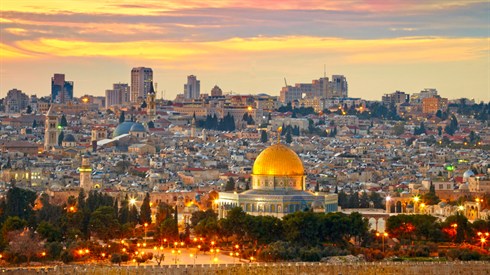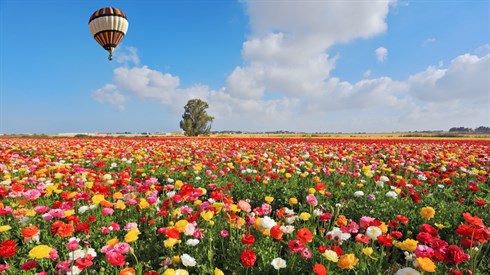35
Hallel is also a highlight of the Pesach Seder, but the format in which it is said is unusual & intriguing. First, it is recited at night, as well as during the day, unlike at other Chagim when it is said only by day (many shuls also recite Hallel at the conclusion of Ma’ariv on Seder night). Second, it is split into two parts, rather than said in its entirety, all at once.
The usual explanation for this deviance from the norm is that the first part of Hallel relates to the Exodus, while the second part speaks of a future, Messianic glory. As such, it is appropriate to say it on Seder night, when we focus on the Exodus, as well as by day; & the split format adheres to the Hagada’s principle of, "We begin with the negative (our slavery in Egypt) & conclude with the positive (our Redemption both past & future).
I have another thought about the "split-Hallel."
The Pesach Seder is the epitome of bittersweet emotion. On the one hand, there is much sadness surrounding our two centuries in Egypt, & we reflect this in the maror, the salt-water & the matza "poor bread" that we eat Pesach night.
But there is also much to rejoice over in the Egyptian experience: Our elevated conduct vis a vis our fellow Jew (e.g. we never informed on one another); the honing of our courage & resolve in the "iron furnace" of bondage, which prepared us for all future oppressions; the closeness to Hashem we achieved at that time, &, of course, our eventual redemption. All this we celebrate with 4 toasts of wine, exuberant singing & a grand, festive meal.
On a personal level, most of us carry intense memories of Seders past, spent with loved ones whose seat is now as empty as that of Eliyahu. As great as Pesach is in our own day, we look back with fond nostalgia at how amazing were the Seders of our youth, & we wonder if we could ever create a Yiddishe ta’am (sorry, I can’t find the English equivalent for that!) of that caliber in our own homes & communities.
Hallel, in its divided form, perfectly represents this dualism of both sadness & celebration. It conveys the reality that, as great as it is to celebrate Pesach as free people - particularly in our own Jewish land - we will not be able to sing the full, complete, undivided Hallel until we are all together in Israel, until we are all on the same "spiritual page," & until we are all dedicated to loving, supporting & singing the praise of each & every one of our fellow Jews, as well as Hashem.
On that great and glorious day - may it come soon - we shall all surely recite Hallel Shalem.

Matza Ashira and Matza Sheruya
Chapter Eight-Part One
Rabbi Eliezer Melamed | 5775

Keriat Shema
Chapter Fifteen-Part One
Rabbi Eliezer Melamed | 5775

Pirkei Avot between Pesach and Shavuot
Rabbi Berel Wein | 5769

"...but he could not become warm."
Rabbi Shimon Klein | 5761
Daf Yomi Sanhedrin Daf 105
R' Eli Stefansky | 3 Nisan 5785






